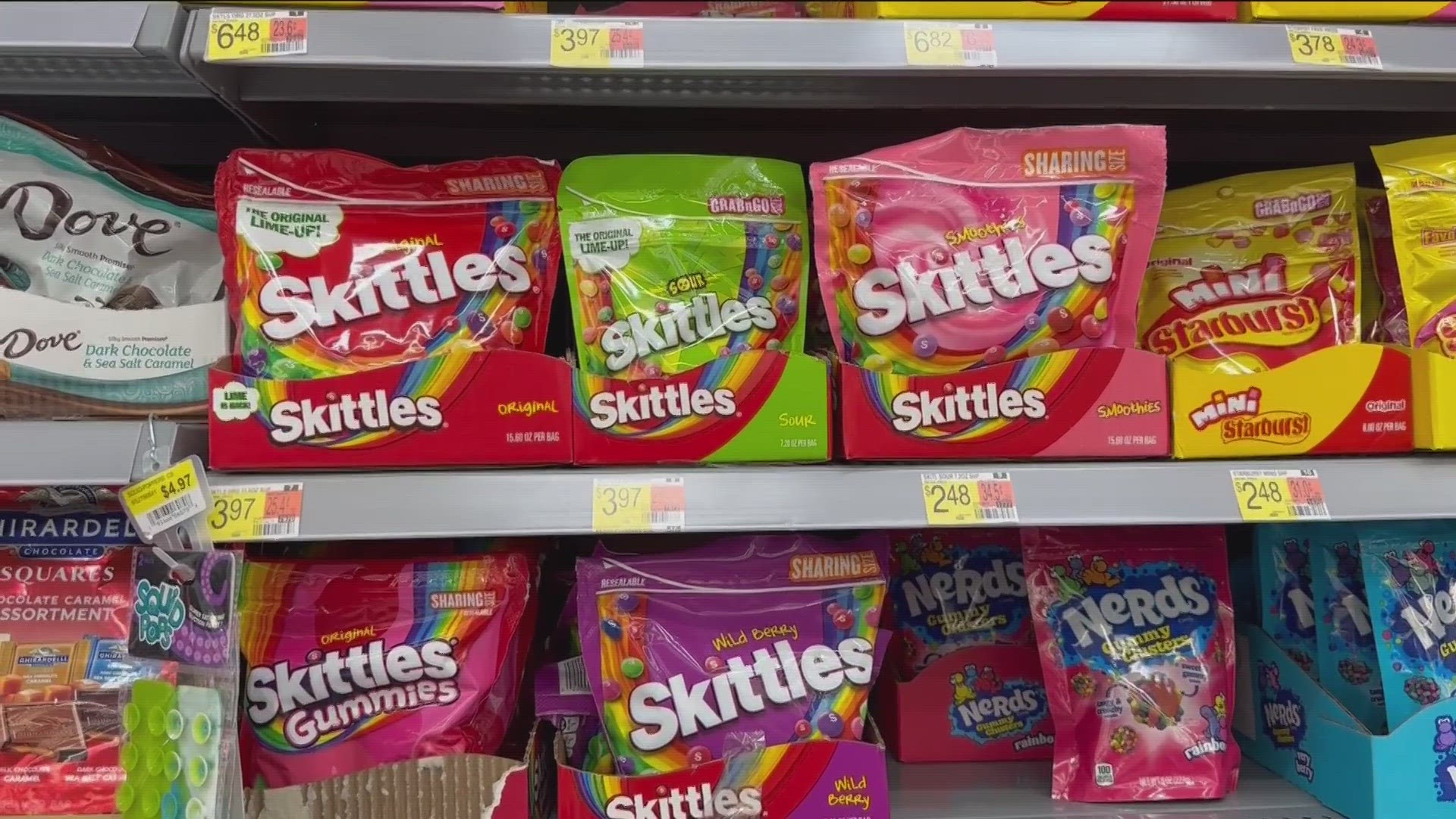SAN DIEGO — California could make history as the first state in the United States to ban several commonly used chemicals from making many popular candies, from Skittles to M&M's.
A new state bill targets Red No. 3 dye, and other additives have been linked to various health concerns, from certain cancers to hyperactivity in kids.
The legislator behind the bill is making it clear: Assembly Bill 418 is not about banning these popular candies but instead targets some of the most potentially dangerous chemicals used to make them here in the United States
"I don't think it's a bad idea," said mother Jessica Bethune. She has chosen not to give her two-year-old toddler any candy with certain dyes in it after seeing many studies linking these chemicals with developmental and behavioral issues and cancer and reproductive issues.
She said she supports this newly proposed state legislation banning brominated vegetable oil, potassium bromate, propylparaben, Red No. 3 dye, and titanium dioxide.
"I don't think it's overreach," she added. "Because in Europe, they have candy; people can pick different candies and make stuff without dyes. I am sure they have some of the same equivalents here."
But Maria Tisei, mom to a nine-year-old and a pediatric nurse, said that she sees this move as "overreach."
"I think that candy is candy, and anything in moderation is okay," she told CBS 8. "I hate banning anything because it takes away our rights."
"By introducing this bill, we are not going to pull any items off the shelves," clarified Assembly Member Jesse Gabriel, who proposed this new legislation. "I think there's a zero percent chance that we're going to ban Skittles in the state of California. I love Skittle; I love candy."
Gabriel pointed out that there are safer alternatives to all these chemicals, none essential to the candies' formulas.
"What we want them (the candy manufacturers) to do is we want them to change their ingredients - we want them to make minor modifications to their recipes, and that's what you've seen in places like Europe," Gabriel told CBS 8. "And as a result, kids and families are safer in the European Union than they are here in the United States of America."
"If you can make the candy without the toxicity in it, why not make the candy without the toxicity?" asked father Alain Gazaui. "If it costs the companies a little bit more to protect the population of the United States, why wouldn't they do that?"
Gazaui said that legislation shouldn't be necessary for the candy makers to act in good conscience.
"Either way, as long as it protects my daughter from having a piece of candy when she can have it and not be harmful to her, that'd be great."
State lawmakers will begin debating this new bill, first in committee meetings, beginning April 11.
WATCH RELATED: How to eat healthy on a budget

